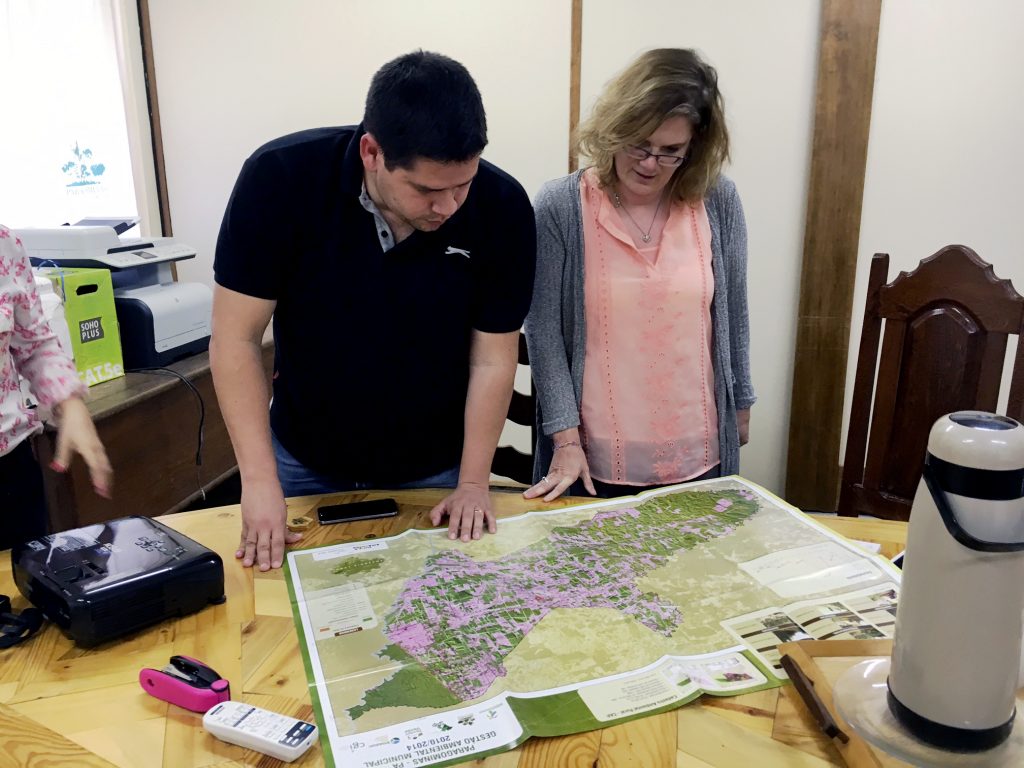
For the past 15 years, CASE has been exploring this question: How do social entrepreneurs leap the chasm from idea to sustainable impact at scale?
Now, as part of that research, CASE has partnered with Mercy Corps, USAID and the Skoll Foundation to study how three innovative social ventures have scaled their impact. The CASE team will travel around the world to take a close look at the ventures, conduct interviews with their teams and partners, and summarize their lessons learned on the path to scale. The results of this project will be released in a summary paper and three case studies (sign up for our newsletter to hear when they are released!).
The first social venture we’re studying is Imazon, a nonprofit organization based out of Belém, Brazil. Imazon has been working to decrease deforestation and greenhouse gas emissions in the Brazilian Amazon for over 25 years. Their unique combination of data-backed research, innovative technology tools, and multisector partnerships have led to many successes and hard fought lessons learned.
Next we’ll be heading to Uganda to visit Evidence Action and their Dispensers for Safe Water program. Unsafe water contributes to the deaths of over 300,000 children under the age of five annually from diarrhea and is the second biggest killer of this age group in Sub-Saharan Africa. Evidence Action is tackling this problem by installing chlorine dispensers next to wells and other water sources in rural communities. Their interventions are evidence based (see their key performance indicators here) and are focused on behavior change to ensure sustained adoption for greatest impact.
Our final case study will be with the team of VisionSpring. VisionSpring aims to provide affordable eyeglasses to people in areas that otherwise would not have access. Through a combination of retail outlets, eye exam outreach, and partnerships with different sectors, VisionSpring has been able to distribute over 2 million pairs of glasses in 40 developing countries. They have experimented with different business models and adapted their approaches based on new locations and cultural contexts. CASE awarded VisionSpring and their founder Jordan Kassalow our Award for Enterprising Social Innovation (ESI) in 2010. We’re excited to check back in with VisionSpring and see what new lessons they have learned on the path to scaled impact.
Each of these organizations works in vastly different contexts and on varied social problems so we are excited to share their unique stories. We are also excited to share what they have in common: a quest for impact at scale, lessons learned from experimenting (sometimes successful and sometime not) over many years, and their advice from the trenches on what works and what doesn’t. By learning from their rich experience, we hope to inspire other social entrepreneurs and offer the tips and frameworks so that more social ventures will be able to effectively scale their impact and improve lives in the communities they serve.
The three case study organizations are selected from the investments of the Innovation Investment Alliance (IIA). The IIA is a unique partnership between the Skoll Foundation and USAID, supported by Mercy Corps, to grant over $40 million to proven, transformative, and innovative social enterprises to scale their impact.
This study is being made possible by the generous support of the American people through the United States Agency for International Development (USAID). The U.S. Agency for International Development administers the U.S. foreign assistance program providing economic and humanitarian assistance in more than 80 countries worldwide. The contents of this blog are the responsibility of CASE at Duke University and do not necessarily reflect the views of USAID or the United States Government.
